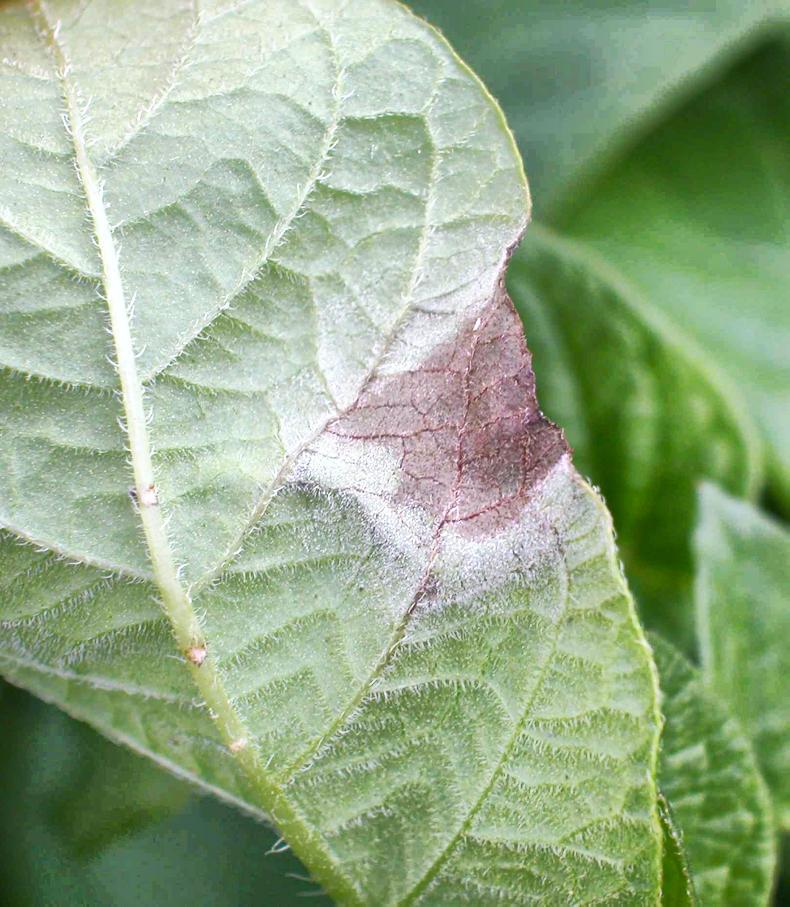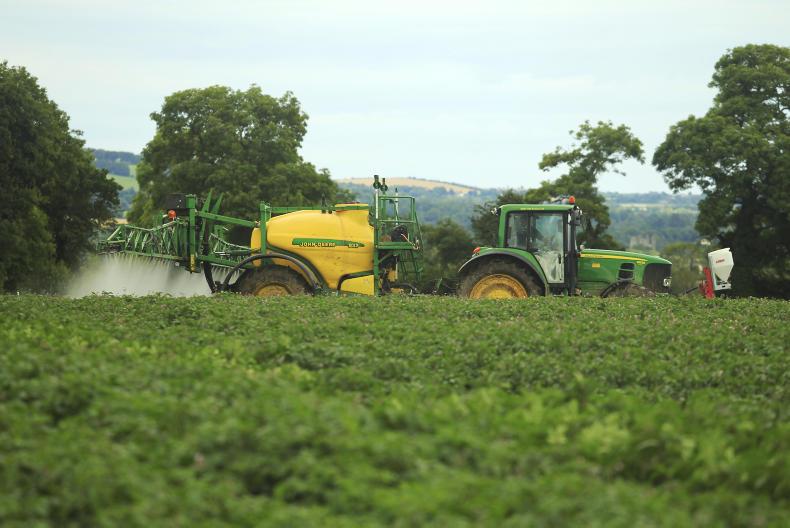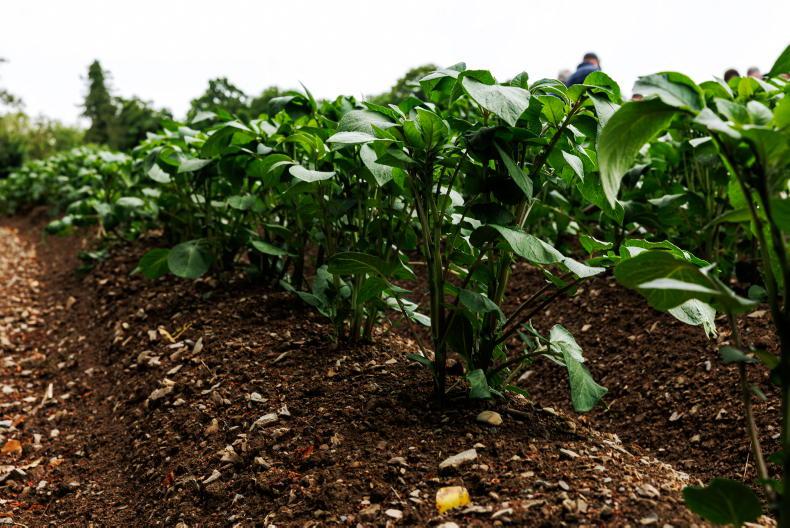The UK Sainsbury Laboratory has applied for permission to release genetically modified potatoes for field trials in Britain. In documents submitted to the Department for Environment, Food and Rural Affairs (DEFRA), researchers are seeking to plant tubers which have been genetically modified to improve a number of traits.
These traits include the resistance to Phytophthora infestans (the organism responsible for the late blight of potatoes), traits to improve tuber quality and also resistance to potato cyst nematodes (PCN).
Resistant genes

Late blight is the number one disease in potato production in Europe.
Since 2001, the Sainsbury Laboratory in Norwich has been working on identifying, mapping and isolating resistance (R) genes from potato varieties which confer resistance against potato late blight (P infestans).
The genes identified could potentially revolutionise the fight against potato late blight as they confer resistance against many different isolates of the pathogen.
The documents state that there is now a need to test these genes in a "real" environment. The three R genes (Rpi-vnt1.1, Rpi-amr3i and Rpi-amr1e) have been transformed into Maris Piper cultivars as a three-gene stack in combination with a gene-silencing module conferring increased tuber quality (SLJ25057). While some of these genes also confer the resistance to potato cyst nematode, this will not be one of the main focuses of the project.
Key aims
Researchers are aiming to study the effectiveness that late blight resistance genes can offer to the control of late blight in potatoes without relying on agricultural inputs. This will be tested over a number of trial sites and will be assessed on yield and performance in comparison with the wild-type Maris Piper plants which will be subjected to standard fungicide sprays.
They also will also assess the tubers for a number of quality characteristics such as browning and cold-induced sweetening, as well as other relevant characteristics such us dry-matter content.
Environmental risk

Late blight control represents a significant cost to potato growers
Conventional potato varieties have limited ability to survive in western European environments except when cultivated. Plants generated from tubers are readily eliminated so potato plants are not deemed to be invasive of natural habitats.
The researchers expect to see no difference in terms of persistence in agricultural habitats or invasiveness into natural habitats when compared to conventional potato varieties.
Pollen from potato plants normally disperse less than 10 metres from the parent plant. They aim to take the necessary steps to maintain a safe distance from conventionally cultivated potatoes. However, in the event that pollen was to be transferred to non-genetically modified potato plants, they expect to see no consequences as potato propagation conventionally takes place via tubers and not via seeds.
The trials are expected to commence in June 2019 once permission is granted.
The UK Sainsbury Laboratory has applied for permission to release genetically modified potatoes for field trials in Britain. In documents submitted to the Department for Environment, Food and Rural Affairs (DEFRA), researchers are seeking to plant tubers which have been genetically modified to improve a number of traits.
These traits include the resistance to Phytophthora infestans (the organism responsible for the late blight of potatoes), traits to improve tuber quality and also resistance to potato cyst nematodes (PCN).
Resistant genes

Late blight is the number one disease in potato production in Europe.
Since 2001, the Sainsbury Laboratory in Norwich has been working on identifying, mapping and isolating resistance (R) genes from potato varieties which confer resistance against potato late blight (P infestans).
The genes identified could potentially revolutionise the fight against potato late blight as they confer resistance against many different isolates of the pathogen.
The documents state that there is now a need to test these genes in a "real" environment. The three R genes (Rpi-vnt1.1, Rpi-amr3i and Rpi-amr1e) have been transformed into Maris Piper cultivars as a three-gene stack in combination with a gene-silencing module conferring increased tuber quality (SLJ25057). While some of these genes also confer the resistance to potato cyst nematode, this will not be one of the main focuses of the project.
Key aims
Researchers are aiming to study the effectiveness that late blight resistance genes can offer to the control of late blight in potatoes without relying on agricultural inputs. This will be tested over a number of trial sites and will be assessed on yield and performance in comparison with the wild-type Maris Piper plants which will be subjected to standard fungicide sprays.
They also will also assess the tubers for a number of quality characteristics such as browning and cold-induced sweetening, as well as other relevant characteristics such us dry-matter content.
Environmental risk

Late blight control represents a significant cost to potato growers
Conventional potato varieties have limited ability to survive in western European environments except when cultivated. Plants generated from tubers are readily eliminated so potato plants are not deemed to be invasive of natural habitats.
The researchers expect to see no difference in terms of persistence in agricultural habitats or invasiveness into natural habitats when compared to conventional potato varieties.
Pollen from potato plants normally disperse less than 10 metres from the parent plant. They aim to take the necessary steps to maintain a safe distance from conventionally cultivated potatoes. However, in the event that pollen was to be transferred to non-genetically modified potato plants, they expect to see no consequences as potato propagation conventionally takes place via tubers and not via seeds.
The trials are expected to commence in June 2019 once permission is granted.













SHARING OPTIONS